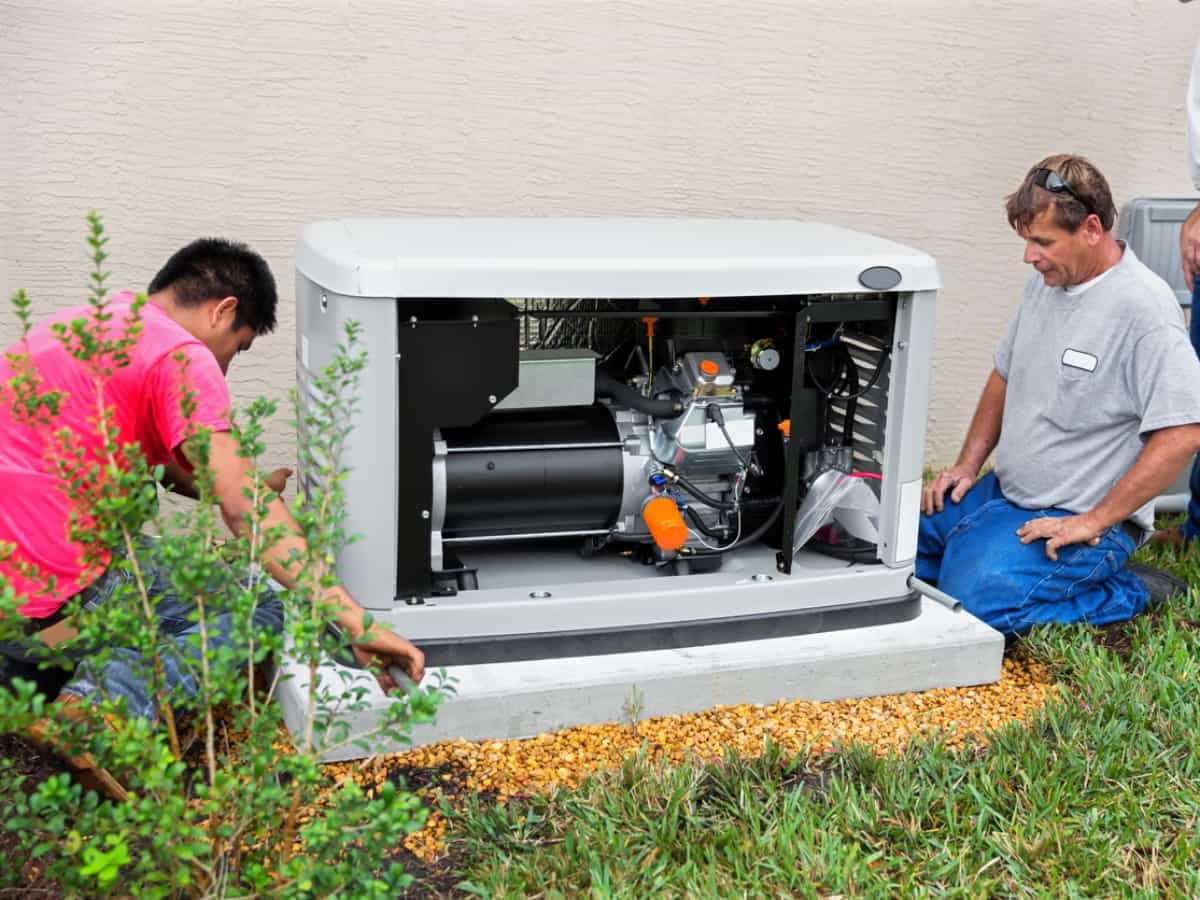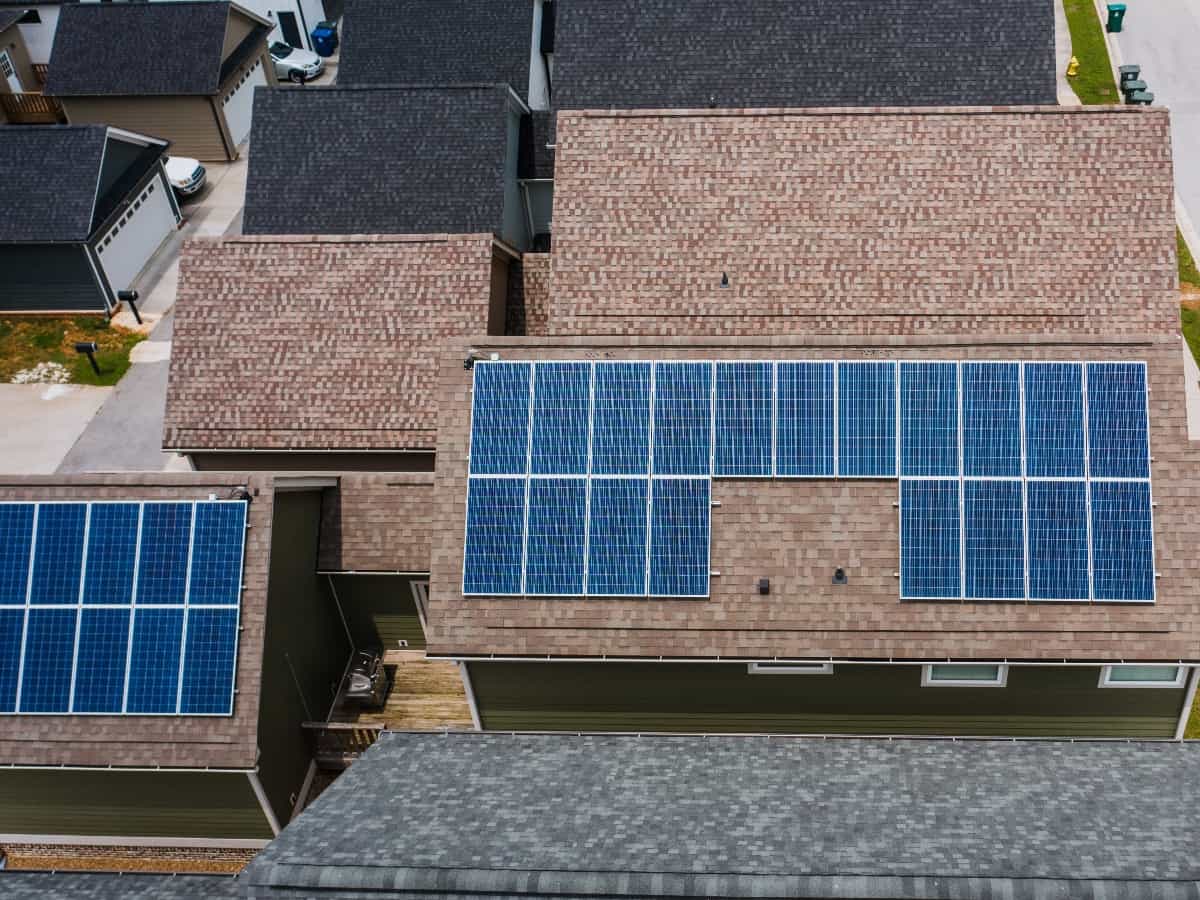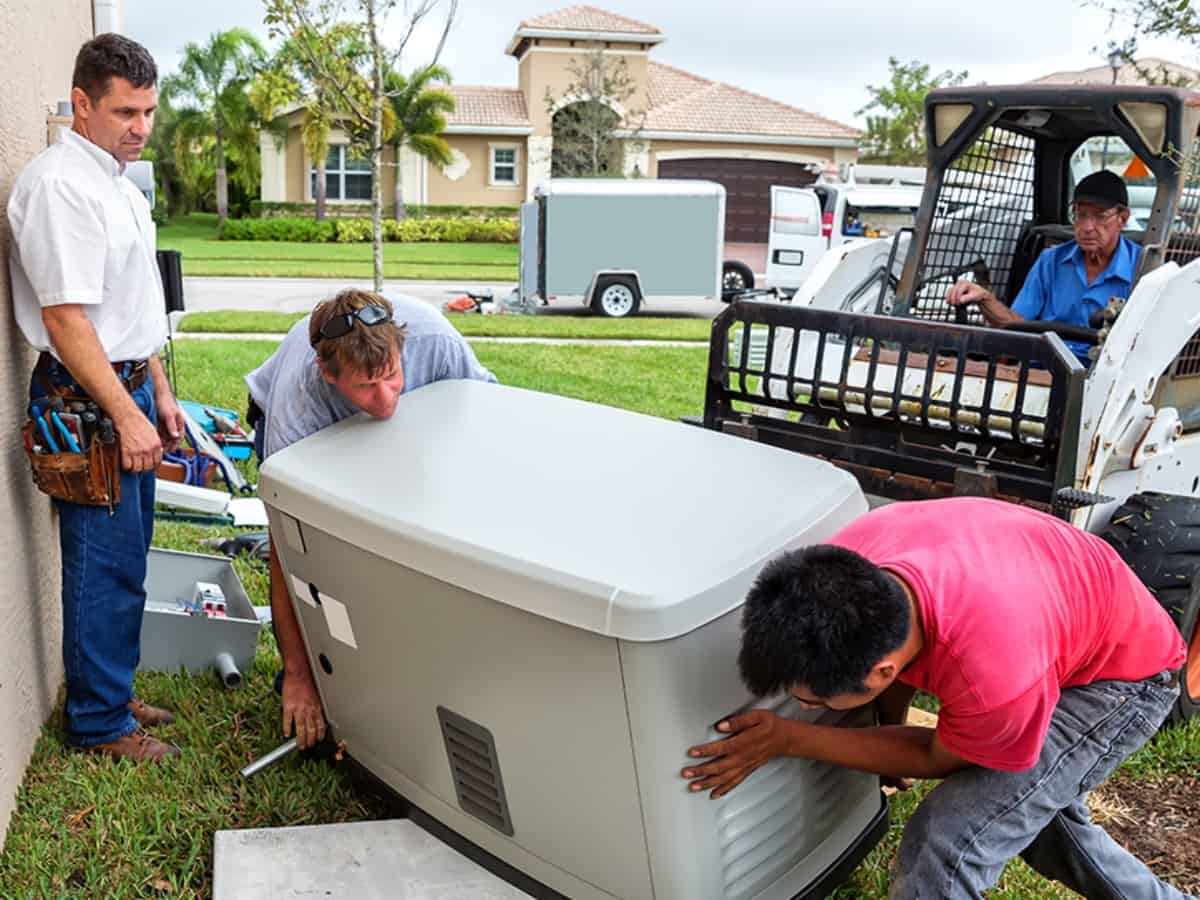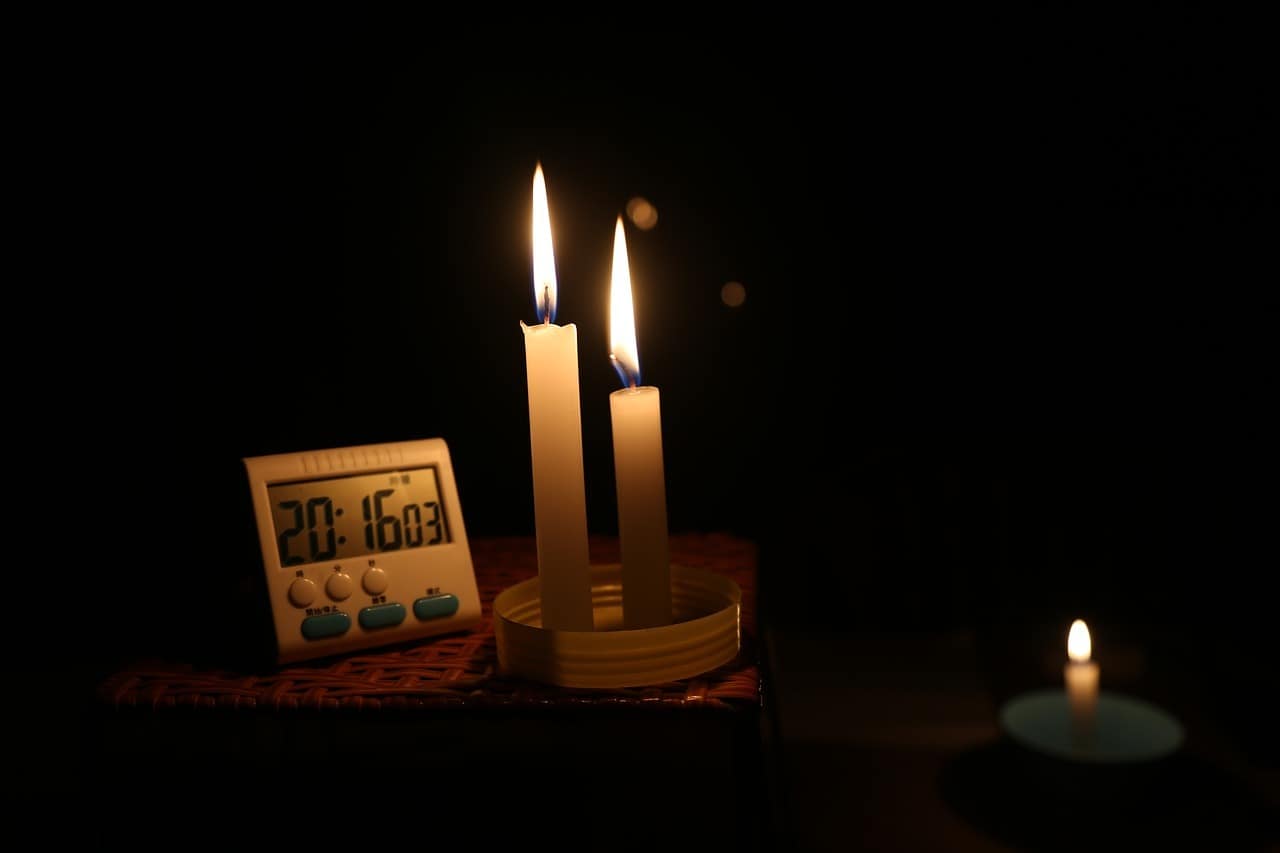Electricity has become an integral part of modern life. However, if you use electricity from the grid, you understand how unreliable it can be. That’s why having a backup plan is crucial. Many people see solar backup power as an excellent choice in an outage. According to the US Energy Information Administration (EIA), power interruptions for US customers were estimated to be six hours in 2018.
You might consider solar energy if you want to keep your home powered during blackouts. However, before you purchase a system, there are a few things you need to keep in mind.
This article offers tips for picking the best solar backup power that meets your needs.
Discover Energy Audits with Solar Energy and ONIT Home
Try our Free Energy Audit to make sure your home is performing at optimum energy efficiency. We’ll inspect every nook and cranny of your home to make sure it’s best serving your needs. We’ll also give you tips on lowering your energy bills, conserving energy, and creating a more efficient space. To learn more about how we can help you maintain a top-performing home, visit us online to get started!
What Is Solar Backup Power?
Solar backup power is power captured from the sun and stored for use when the main grid is down. Backup systems store enough energy to power a home or business. The type of backup you invest in will determine the amount of power you will have when relying solely on your solar panels during a power outage or extended time.
What Are the Available Options For Solar Backup Power in an Outage?
Solar backup options for the home include solar storage batteries and solar generators. Let’s examine these two options closely to see which suits your home or business.

1. Solar Generators
Statistics show that the global market for solar generators was $467.1 million in 2021, and researchers expect it to hit $822.7 million by 2027. Solar generators are portable devices that store the sun’s energy. They feature solar panels that capture sunlight and convert it into electrical energy.
Solar panels generate direct current (DC) power which needs to be converted to alternating current (AC) before entering your home. This is because most home appliances use AC power. You enjoy many benefits when you have a solar generator in your home. Not to mention how handy they are when it comes to off-grid living such as camping. However, there is also a downside to this backup option. Here are some benefits and drawbacks that you should know before choosing this option:
Benefits
- It’s free and reliable. There are no costs associated with this solar option since you’ll be using the power generated by the sun. In addition, it helps power your home when there is an outage.
- Environmental friendly: Solar generators use solar energy to run, meaning you don’t require fuel or gas to run them. Renewable power is always clean since no fossil fuel is involved in polluting the environment.
- They require less maintenance: These generators have fewer movable parts, unlike gasoline generators making them easy to maintain.
- Silent operation: You wouldn’t want to wake up your neighbors with a generator’s noise at night. Right? It only happens with fuel and gas generators, since solar generators do not have movable parts, making them work in near-silent mode.
- Reduce electricity bills: You can always use a solar generator at any time if you have a good system that collects energy efficiently.
Drawbacks
Although solar generators have numerous benefits, they don’t lack their downsides.
- Relies on to the sun: The generator depends solely on the sun.
- Limited power storage: The amount of energy a solar generator store depends on its size. So you may not be able to power your whole home with it for extended periods. However, it can run small appliances such as laptops, phones, etc.
- High upfront costs: A solar generator’s initial price is higher than a gasoline one. Also, there are installation costs, which will depend on your generator size. A medium size solar generator can cost between $2,000 and $4,000. It can power your phone, laptop, and refrigerator. Even if this cost is high, generators have lower maintenance costs so you can expect a return on investment.

2. Solar Battery Storage
A solar battery storage system is a device that helps store energy generated by solar panels. Like a solar generator, you can use the energy stored in this storage system to power your home during an outage. In 2021, the market for solar batteries was valued at US $148 million. This figure is expected to reach $540 million by 2030.
A solar battery backup uses an inverter, a charge controller, and a battery. You can choose an affordable deep cycle, flow, or high-end lithium battery like Tesla Powerwall.
The advantages and disadvantages of solar battery storage and solar generator are almost the same:
Benefits
- Provide reliable backup power
- It gives you peace of mind.
- It’s eco-friendly
- The generator saves you money in the long run
- Reduce electricity bills
- It’s expandable
- 100% Silent
- Less maintenance (depending on the type of battery you choose)
- Earn tax credits
Drawbacks
- High upfront costs
- Weather dependant
- Unlike grid electricity, the battery lifespan decreases as you use it.
- You may end up with a complex solar backup system due to battery additions.
With these solar backup power options, you might also go off-grid. With an off-grid system, you will entirely depend on solar and won’t use electricity from the utility company.
An off-grid system is most common in remote areas without electricity or where electricity from electricity companies is unreliable. The main downside of this system is its initial cost, although it has many benefits.

How to Select the Best Solar Backup Power
All homes differ in terms of power usage. So, you’ll only know whether you have the best solar backup power in your home if it meets your needs.
It’s good to note that involving a professional when choosing your backup system is crucial. They can help you find the right size of solar panels and batteries. Here are some things you should look for when selecting a solar power system:
Solar Panel Size
Your panels are the first thing to consider before buying a storage system. Have you bought them already? If not, then what size of panels would you want? Remember that the panel’s size will determine the energy stored in the battery or generator. Here’s how you can size your solar panel.
Solar Generator Size
If you’re thinking of getting a solar generator, it’s crucial to consider its size. A small generator (under 1000 watts can power small appliances, while a generator with over 1000 watts can power larger devices.
Battery Size
A batter’s capacity is measured in amp-hours. It’s essential to consider the battery’s capacity since it determines how much power you can get in your home. If you’re looking to power your whole home, ensure the size of your battery is large enough to supply the power needed.
Life Span and Warranty
The cost of buying and installing a solar system is high, so check the lifespan of your battery or generator. Solar batteries last between 5 -15 years, while solar generators can last between 25 to 35 years.
In addition to checking the lifespan, check the solar battery or generator warranty and choose the best. However, the longer the warranty, the heftier the price.
Battery Life cycle
A battery’s cycle refers to the number of charges and discharges a battery can withstand before losing its capacity.

Budget
Thinking about your budget before you pick your solar backup system is good. This is because solar generators and batteries come in different sizes. Small systems can power devices that use less energy, and large systems can power your whole home at different prices.
Charger controller
It helps prevent battery overcharging for solar batteries and generators. For optimal charging efficiency, look for a Maximum Power Point Tracking (MPPT) charge controller.
Inverter
An inverter helps convert DC to AC, making it crucial in any solar backup system. Since you might want to upgrade your system in the future, opt for an upgradable inverter.
Battery type
The type of battery will determine the efficiency of your solar backup power. Here are the most common batteries:
- Lithium-ion battery: It’s the most common and efficient battery for solar systems. It requires less maintenance and lasts longer. However, it is the most expensive type.
- Lead-acid battery: This is considered the granddaddy of batteries. It’s cheap but heavy and has low energy density.
- Flow battery: They are cheaper and have a large capacity since they use tanks of liquids to store energy. However, they are heavy and less efficient.
Power Your Home Today With ONIT Home
How would you feel being the only one in your block with electricity in the event of an outage? Having the best solar backup power assures you this and more. There are two common solar backup systems; storage batteries and solar generators. You can also opt for an off-grid system to power your whole home. ONIT Home can help build the perfect solar energy system for you. You’ll only need to tell us your power needs, and we will be on it. In addition to providing the best solar system, we offer easy finance options to help you switch swiftly.
Visit us online or give us a call today at 1-833-433-0331 to get started!



